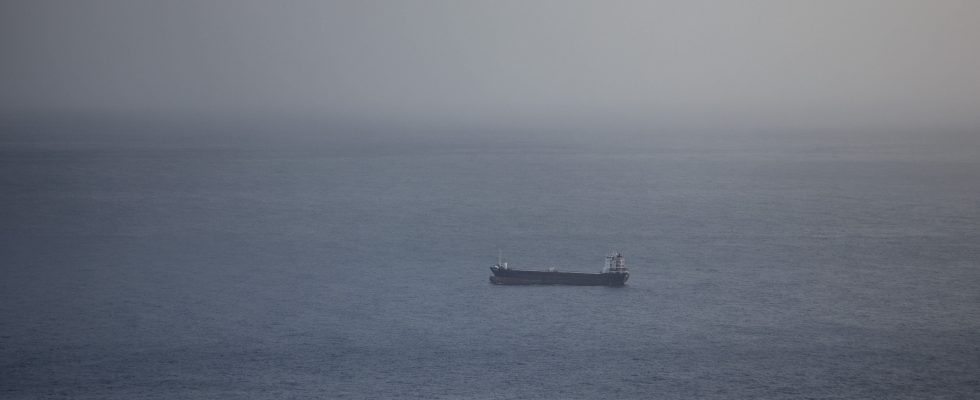They ultimately had no other choice. The Danish maritime transport giant Maersk, followed by the German shipowner Hapag-Lloyd, announced this Friday, December 15, to suspend the crossings of their container ships in the Red Sea due to repeated attacks on their ships by the Houthi rebels of Yemen in recent years. days.
Maersk ordered its ships to no longer pass through the strategic Bab al-Mandab Strait “until further notice”, while Hapag-Lloyd announced “to interrupt all container ship traffic through the Red Sea until further notice”. ‘until Monday’ at least. These decisions come as the Houthis, close to Iran, have warned that they will target ships sailing off the coast of Yemen which have links to Israel, in response to the war between Israel and the Palestinian Islamist movement Hamas in the Gaza Strip.
In recent weeks, the Yemeni rebels have matched their words with actions: the Houthis have increased attacks near the strategic Bab al-Mandab strait, which separates the Arabian Peninsula from Africa and through which 40% of international trade passes. Several missiles and drones were shot down by US and French warships patrolling the area.
“Cooperated with Israel”
These attacks have intensified in recent days. This Friday, the Yemeni rebel group claimed to have carried out “a military operation against two container ships, MSC Alanya and MSC Palatium III”. The ships were targeted by two missiles “after their crews refused to respond to calls from the Yemeni naval forces”, said their military spokesperson, Yehya Sari, during a demonstration in support of the Palestinians organized in Sanaa, the capital that they have controlled since 2014.
The maritime intelligence company Ambrey had indicated earlier that the two ships, one of which it said was heading towards Jeddah, in Saudi Arabia, had been threatened probably because their owner, the Swiss shipowner MSC, had “cooperated with Israel”. .
Earlier in the day, another incident involved a Liberian-flagged container ship in the same area, owned by the German company Hapag-Lloyd. “We know that something that was fired from a Houthi-controlled area in Yemen hit a ship which was damaged and a fire was reported,” a US military official told AFP .
A route used each year by 20,000 ships
These attacks provoked strong reactions from the international community, well aware of the very important issues linked to this maritime route linking the Mediterranean to the Indian Ocean and used each year by nearly 20,000 ships. “Houthi attacks on civilian merchant ships in the Red Sea must stop immediately,” German Foreign Minister Annalena Baerbock responded this Friday.
Visiting Israel, the American national security adviser, Jake Sullivan, denounced “a concrete threat to free navigation” in the Red Sea. “The United States is working with the international community and its partners in the region to confront this threat,” he added in Tel Aviv, after meeting Israeli officials.
Saudi Foreign Minister Faisal bin Farhane, for his part, said he was concerned about “the possibility of escalation”, stressing that the region “did not need another conflict”. The NGO Human Rights Watch also condemned these Houthi attacks. The latter “endanger civilians on board ships which have no link with a known military target,” she denounced.
“Ready to target anything associated with Israel”
Iranian Defense Minister Mohammed Reza Ashtiani, an ally of the Houthis, warned on Wednesday against a possible deployment of multinational forces in the Red Sea, which he considers to be his zone of influence. “If they make such an irrational decision, they will face extraordinary problems,” he told the official ISNA agency.
The Houthis said Friday that boats will not be targeted off Yemen if they meet their directives, but that ships bound for Israeli ports “will be prevented from sailing in the Arabian Sea and Red Sea until the entry of food and medicine that our brothers in the Gaza Strip need.
According to Mohammed Albasha, Middle East specialist at the American analysis center Navanti Group, the latest incidents show, however, that “the Houthis are ready to target anything associated with Israel”, regardless of the links.
